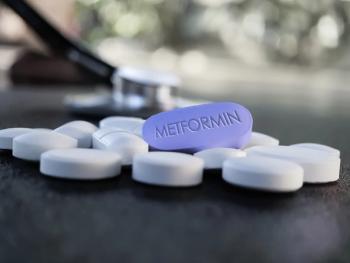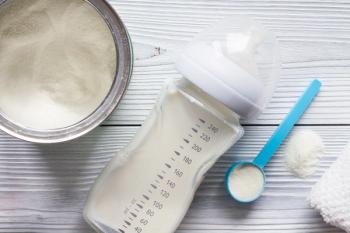
Suppressive acyclovir improves herpes simplex virus outcomes
According to two trials, suppressive oral acyclovir therapy for 6 months improved neurodevelopment outcomes in infants surviving HSV disease with CNS involvement.
Two multicenter, placebo-controlled trials demonstrated that suppressive oral acyclovir therapy for 6 months improved neurodevelopment outcomes in infants surviving herpes simplex virus (HSV) disease with central nervous system (CNS) involvement.
About 70% of survivors of neonatal HSV with CNS involvement have neurologic sequelae, which is a much rarer outcome in infants with only skin, eye, and mouth disease.
In the 2 trials, 74 neonates (45 with CNS involvement; 29 with skin, eye, and mouth disease) were randomized to 6 months of suppressive oral acyclovir (300 mg/m2 body surface area 3 times daily) or placebo after standard initial neonatal HSV therapy (14-21 days of parenteral acyclovir). Neurodevelopment status at 12 months was the primary outcome.
In the infants with CNS involvement, the study drug was received for a median of 4.1 months longer in those assigned to acyclovir versus placebo. In the infants with skin, eye, and mouth involvement, this difference was a median of 1.7 months longer.
Twenty-eight of the 45 infants with CNS involvement were assessed at 12 months; in these patients, mean Bayley scores were significantly higher in the acyclovir group than in the placebo group (88.24 vs 68.12; P=.046). In patients with only skin, eye, and mouth involvement, there were no differences in mean Bayley scores between the groups.
Among patients with CNS involvement, longer periods of acyclovir therapy correlated with higher mean scores.
Neutrophil counts were not significantly different between treatment groups in either study, but there was a trend toward more neutropenia in those assigned to acyclovir.
Researchers say that their findings provide the first controlled data suggesting that ongoing neurologic injury occurs in infants who survive neonatal HSV disease and that neurologic injury can be decreased by longer-term acyclovir therapy.
Kimberlin DW, Whitley RJ, Wan W, et al; National Institute of Allergy and Infectious Diseases Collaborative Antiviral Study Group. Oral acyclovir suppression and neurodevelopment after neonatal herpes. N Engl J Med. 2011;365(14):1284-1292.
Newsletter
Access practical, evidence-based guidance to support better care for our youngest patients. Join our email list for the latest clinical updates.








